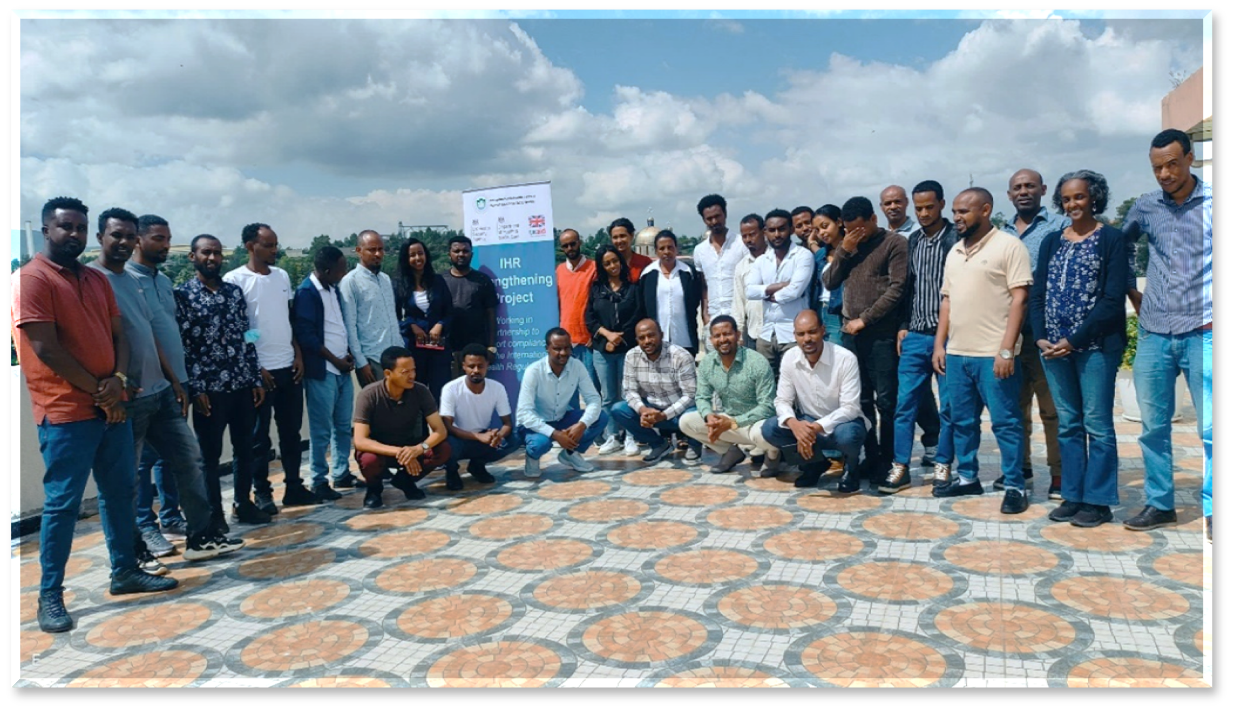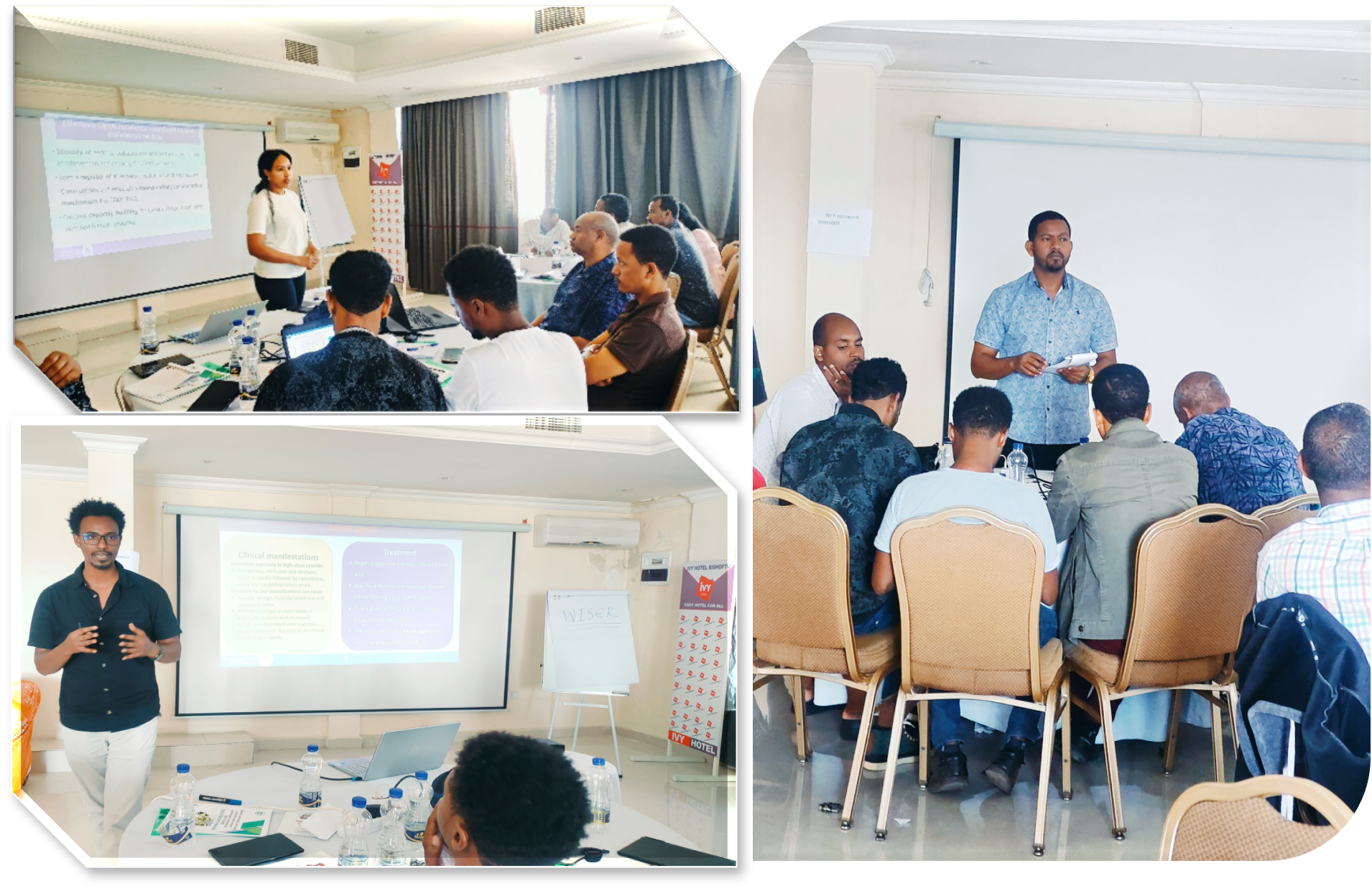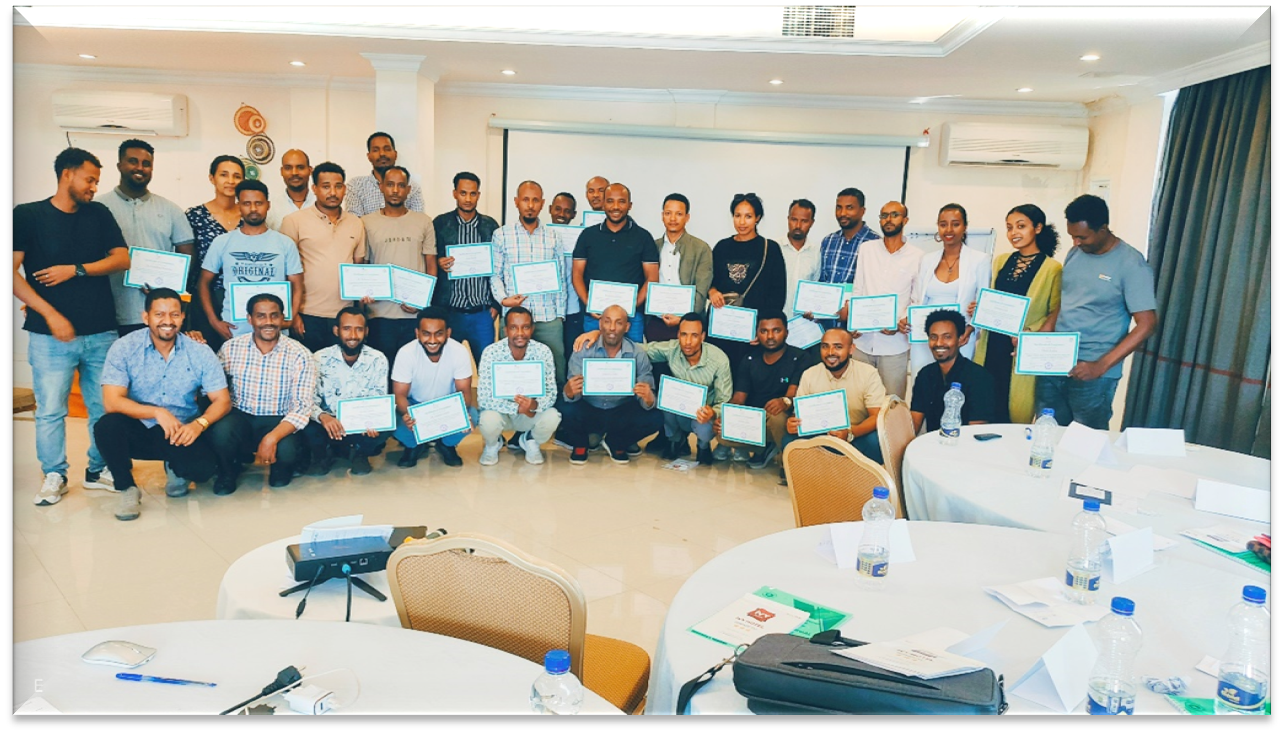
Highlighting a significant partnership between the UK Health Security Agency (UKHSA) International Health Regulations Strengthening Project (IHR-SP) and the Ethiopian Public Health Institute (EPHI), a step towards effective surveillance and response mechanisms to Chemical, Biological, Radiological, and Nuclear (CBRN) incidents has been taken through a Training of Trainers (ToT) workshop. The training took place from 14-16th October 2024 in Bishoftu Town, Ethiopia and brought together 35 professionals from all 14 regions covering national and regional public health, emergency management (PHEM), Regional hospitals, Addis Ababa St. Poulos Hospital, Toxicology Center, and the National Training Center.
This initiative aimed to equip participants with the necessary skills and knowledge to enhance their CBRN surveillance response capabilities. The ToT approach creates a network of trainers who are able to cascade the training to train local health workers, significantly boosting the number of professionals capable in detecting CBRN incidents, enhancing awareness in surveillance and response. It also helps to foster collaboration among key stakeholders, ensuring a comprehensive understanding of CBRN challenges and promoting a unified response across various sectors and regions.

Image above: participants of the Chemical, Biological, Radiological, and Nuclear incidents 'Training of Trainers' workshop
Course Structure and Delivery
The ToT training encompassed a comprehensive curriculum that addressed key aspects of CBRN incident preparedness, the country CBRN surveillance system, and response activities with common chemical case management measures. Participants engaged in self-directed learning through a blend of video presentations, downloadable resources, individual and group exercise activities, and interactive discussions.

This format facilitated a rich exchange of ideas and experiences, enhancing overall understanding. Presentations were led by facilitators from UKHSA, EPHI, and the National Training Centre (image to right). The diverse backgrounds of the participants enriched the learning experience, fostering collaboration and knowledge sharing.
Participants who completed the training received certificates, with a successful post-topic assessment. Feedback from participants was overwhelmingly positive. Notably, 100% of respondents indicated that the training was directly applicable to their roles, demonstrating its practical impact on public health initiatives in their working area.
Dr. Fantahun Workie, EPHI's CBRN Team Focal point said:
“The training provided invaluable insights into CBRN incident surveillance and response activities, with valuable resources, and our partnership with UKHSA and other key stakeholders has been essential for engaging in for the country’s preparedness for CBRN incidents.”
Forward look
The insights gained from this Training of Trainers (ToT) will equip participants to improve CBRN preparedness in their regions, organizations, and communities. Drawing on participant feedback, we intend to enhance our contributions to public health by providing additional ToT and basic trainings tailored to the specific needs of the regions.
Mr Saj Liaquat, IHR-SP Country Lead for Ethiopia said:
“Through this partnership with EPHI, we have been able to successfully train 35 professionals with the necessary skills and knowledge to enhance CBRN surveillance response capabilities. The ‘train the trainer’ model allows these participants to take the skills and knowledge gained and deliver training tailored to the needs of their organisations – demonstrating the true applicability and sustainability of this approach. Thank you to the EPHI and all trainers for their essential support and commitment in making this a success.”

Image above: participants on successful completion of the workshop